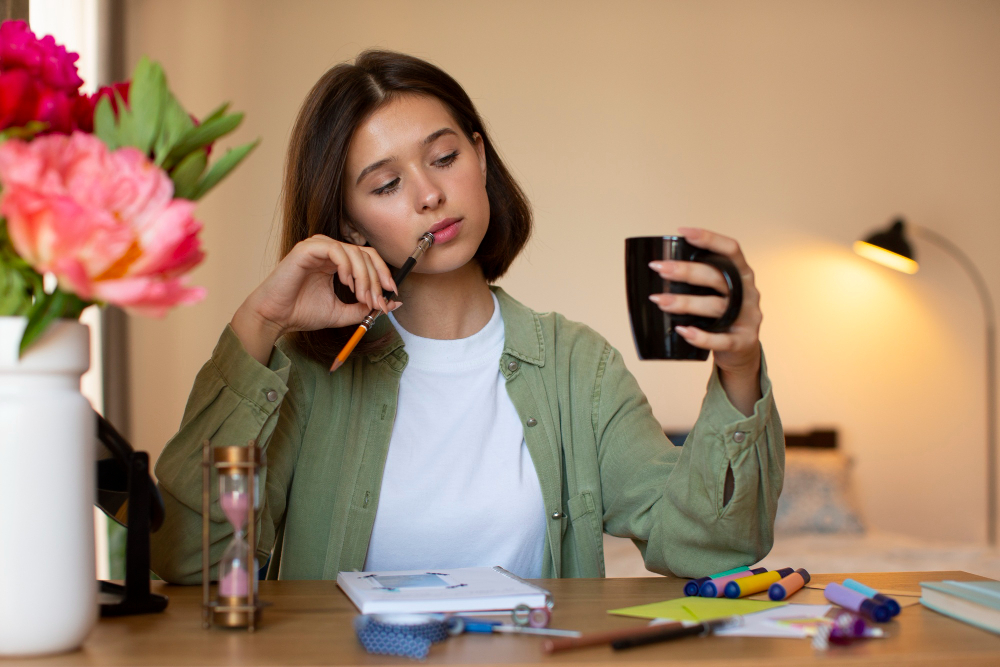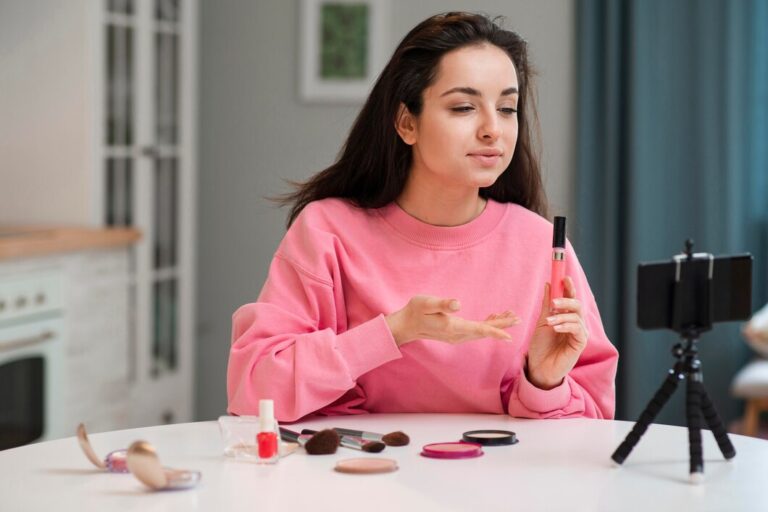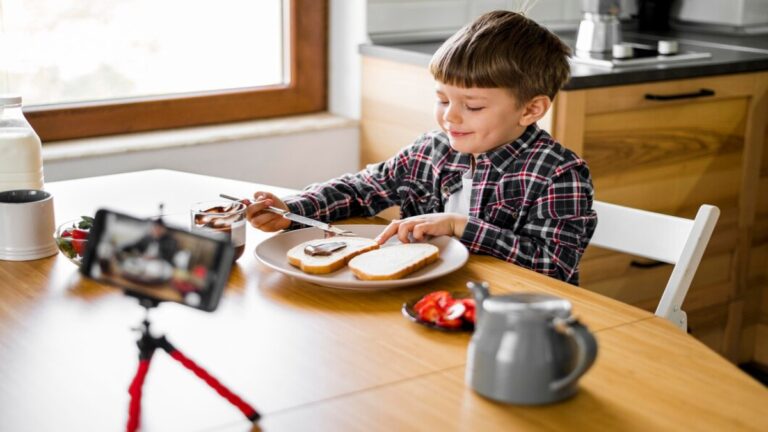
In today’s always-on digital world, where dopamine notifications and infinite scrolling dominate our daily routines, choosing to take a social media break might feel like swimming against the current. Yet, more and more people are discovering that stepping away from constant online interaction can profoundly improve their mental clarity and focus. Whether you’re a student, professional, or parent juggling multiple responsibilities, a temporary break from technology can help you reclaim time, reduce stress, and reconnect with yourself and the world around you.In this blog post, we’ll explore the benefits of taking a social media break, how it impacts mental well-being, what happens when you take a break from social media, and actionable strategies on how to take a break from social media and stick to it.
Whether you’re facing social media addiction or just want more peace of mind, this guide is your first step toward digital freedom.

The Digital Overload: Why a Social Media Break Is Necessary
Social media platforms were designed to keep us connected, entertained, and informed. But somewhere along the way, they also became sources of stress, distraction, comparison, and even anxiety. A few quick scrolls can turn into hours of passive browsing, negatively affecting sleep, productivity, self-esteem, and relationships.
Signs You May Need a Social Media Break
- Feeling anxious or irritable without checking your phone
- Comparing your life to others online
- Losing track of time on social platforms
- Struggling to focus on tasks
- Experiencing low self-worth or mood swings after scrolling
- Sacrificing sleep to stay online
If any of these resonate, it may be time to consider a social media break as a reset for your mind and life.
- Mental Clarity and Cognitive Focus
One of the most immediate benefits of taking a social media break is the boost in mental clarity. Social media constantly bombards our brains with updates, ads, videos, and news that fragment our attention and overload our cognitive resources.
When you pause from these stimuli, your brain has space to think deeply, reflect, and prioritize what truly matters.
You may notice:
- Improved concentration at work or school
- Increased ability to retain information
- Greater awareness of your surroundings
- More intentional and creative thinking
Without the digital noise, your mind becomes quieter, allowing thoughts to flow more freely and clearly.
- Reduced Anxiety and Stress
Research has consistently linked excessive social media use to increased levels of anxiety and stress. The need to stay updated, respond instantly, and curate a perfect image online can take a serious toll on mental health.
Taking a break from technology—especially from platforms like Instagram, Facebook, and Twitter—can help reduce this pressure. People often report feeling:
- More relaxed and grounded
- Less overwhelmed by the opinions of others
- More present in their offline lives
The benefits of taking a break from social media for mental health are profound. You create emotional space to process thoughts, build resilience, and prioritize well-being over performance.
- Better Sleep Quality
Do you ever get lost in the endless scroll of apps like TikTok or Instagram, only to realize it’s well past your bedtime? You’re not alone. The blue light from screens disrupts melatonin production, affecting your natural sleep-wake cycle.
A break from technology especially before bed can significantly improve sleep quality. Many users report:
- Falling asleep faster
- Experiencing deeper, more restful sleep
- Waking up with more energy and focus
Improved sleep also positively affects your mood, decision-making, and ability to handle stress.
- Reconnecting with Real-Life Relationships
Social media gives the illusion of connection, but it often replaces meaningful interactions with superficial ones. When you take a social media break, you’re more likely to engage in real conversations and quality time with the people around you.
Benefits include:
- Strengthened family bonds
- More eye contact and empathy
- Better listening skills
- Reignited friendships through phone calls or meetups
You may even realize how much you’ve been missing while looking down at a screen.
- Increased Productivity and Time Awareness
On average, people spend 2–3 hours per day on social media. That adds up to 15–20 hours per week almost an entire part-time job. Imagine what you could do with that time: learn a new skill, start a side hustle, read a book, or simply relax.
What happens when you take a break from social media is that your day expands. This allows you to reclaim the hours you’ve lost and spend your time with greater purpose. Tasks that once felt overwhelming now become manageable because your focus isn’t split.
- Break the Cycle of Social Media Addiction
Social media addiction is real and it’s more common than we think. These platforms are engineered to trigger dopamine release, the brain’s “reward” chemical. With continued repetition, this fosters the development of a dependency that is difficult to overcome.
By intentionally disconnecting, you interrupt this cycle and rewire your brain to seek satisfaction from more fulfilling sources like nature, hobbies, or deep work.
Breaking free from social media addiction gives you:
- More control over your time
- Stronger willpower
- Increased self-awareness
- Reduced reliance on external validation
- Better Self-Esteem and Less Comparison
A significant and harmful consequence of spending too much time on social media is the perpetual cycle of comparing oneself to others. We compare our real, messy lives with the highlight reels of others, leading to feelings of inadequacy or FOMO (Fear of Missing Out).
When you take a break from social media, the compulsive cycle of comparing yourself to others begins to lose its power. You begin to:
- Focus on your own growth instead of others’ success
- Appreciate your progress without judgment
- Cultivate gratitude for your offline life
This shift nurtures a healthier, more positive self-image.
- Enhanced Creativity and Mindfulness
Social media consumes not just time but mental energy. By reducing this digital clutter, you create room for creativity and mindfulness.
Many people notice:
- A return to journaling, drawing, or music
- More moments of stillness and reflection
- Inspiration from nature and daily life
- Heightened emotional awareness
When you take a break from social media, the compulsive cycle of comparing yourself to others begins to lose its power. This is where creativity thrives.
A Guide to Successfully Unplugging from Social Media
Knowing the benefits is one thing. Sticking to a digital detox is another. Learn how to make your social media break successful and lasting, all without experiencing the feeling that you are being left out.
1. Set a Clear Intention
Define your “why.” Do you want better sleep? More time for family? Less stress? Write it down as a daily reminder.
2. Start Small
The recommended first step is to attempt either a single-day digital fast or a break that lasts for the entire weekend. Gradually extend it as you get comfortable.
3. Delete or Disable Apps
Remove the temptation by uninstalling apps or disabling notifications. You can always reinstall them later.
4. Use App Blockers
Install tools like Freedom, StayFocusd, or Forest to block access to platforms during work or rest hours.
5. Find Healthy Replacements
Fill the social media void with offline hobbies: reading, journaling, exercising, painting, cooking, etc.
6. Let Others Know
Let your friends and followers know that you will be offline for a while. This reduces social pressure and helps them support your decision.
7. Reflect and Reassess
After a few days or weeks, journal about how you feel. What’s changed? What benefits have you noticed?
What are the effects of stepping away from social media for a period of time?
People who unplug—even for a few days—often report surprising and powerful changes:
- Mental calmness: Less racing thoughts and more peace
- Reconnection: A sense of rediscovery—of self, relationships, and goals
- Empowerment: Realizing you’re not controlled by algorithms or external validation
- Joy in simplicity: Enjoying small moments like sipping tea, watching a sunset, or walking without distraction
The longer the break, the more these benefits deepen.
Break From Technology Isolation
Taking a break from technology doesn’t mean cutting off all communication or going off-grid. In essence, it is about recalibrating your digital consumption to ensure it benefits your overall well-being, rather than depletes it.
Use this time to connect more deeply with the analog world—books, nature, art, conversation, meditation, movement. Reclaim your presence.
Final Thought: Take a Social Media Break and Reclaim Your Mind
You don’t have to quit forever—but taking intentional pauses from social media can dramatically improve your quality of life. The benefits of taking a social media break include sharper focus, reduced anxiety, better sleep, improved relationships, and freedom from addiction.
Now is the perfect time to take a social media break and see what clarity and peace feel like. Don’t wait for burnout to force you offline—choose wellness before you’re overwhelmed.
What could you gain from just one week away from social media?




